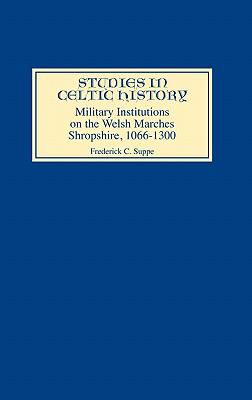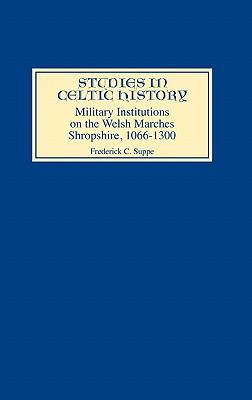
Bedankt voor het vertrouwen het afgelopen jaar! Om jou te bedanken bieden we GRATIS verzending (in België) aan op alles gedurende de hele maand januari.
- Afhalen na 1 uur in een winkel met voorraad
- In januari gratis thuislevering in België
- Ruim aanbod met 7 miljoen producten
Bedankt voor het vertrouwen het afgelopen jaar! Om jou te bedanken bieden we GRATIS verzending (in België) aan op alles gedurende de hele maand januari.
- Afhalen na 1 uur in een winkel met voorraad
- In januari gratis thuislevering in België
- Ruim aanbod met 7 miljoen producten
Zoeken
€ 177,45
+ 354 punten
Omschrijving
Between 1066 and 1282 two quite different societies were juxtaposed along the Welsh Marches: a feudally based Anglo-Norman one, and a Celtic Welsh one. It has been conventional to consider the former to have been more sophisticated and developed than the latter and to explain the English conquest of Wales upon the premise of superior English military technology, tactics, and institutions. The situation was more complex, however, and during more than two centuries of raids, attacks, and campaigns each society borrowed from the other. This book is the first comparative study of the two military systems which confronted one another along the Welsh Marches. Although it focuses principally upon Shropshire and adjacent north-central Wales, it considers issues pertinent to the entire border region, and indeed, to other medieval marches as well. Specific topics examined include: the exact nature and intensity of the Welsh military service, Welsh tactics and the English response to them, the development and functioning of Clun (a representative border castlery), the 'muntatores' of Oswestry (a border patrol system of light horsemen), the nature and evolution of local command in Shropshire and the so-called `wardens' of the March, and the extent to which Welsh military customs had constitutional or practical influence upon those of the Marches and of England. FREDERICK SUPPÉ is Assistant Professor, Department of History, at Ball State University. He has published a number of scholarly articles on medieval Wales in learned journals.
Specificaties
Betrokkenen
- Auteur(s):
- Uitgeverij:
Inhoud
- Aantal bladzijden:
- 203
- Taal:
- Engels
- Reeks:
- Reeksnummer:
- nr. 14
Eigenschappen
- Productcode (EAN):
- 9780851153049
- Verschijningsdatum:
- 10/03/1994
- Uitvoering:
- Hardcover
- Formaat:
- Genaaid
- Afmetingen:
- 156 mm x 234 mm
- Gewicht:
- 462 g

Alleen bij Standaard Boekhandel
+ 354 punten op je klantenkaart van Standaard Boekhandel
Beoordelingen
We publiceren alleen reviews die voldoen aan de voorwaarden voor reviews. Bekijk onze voorwaarden voor reviews.









